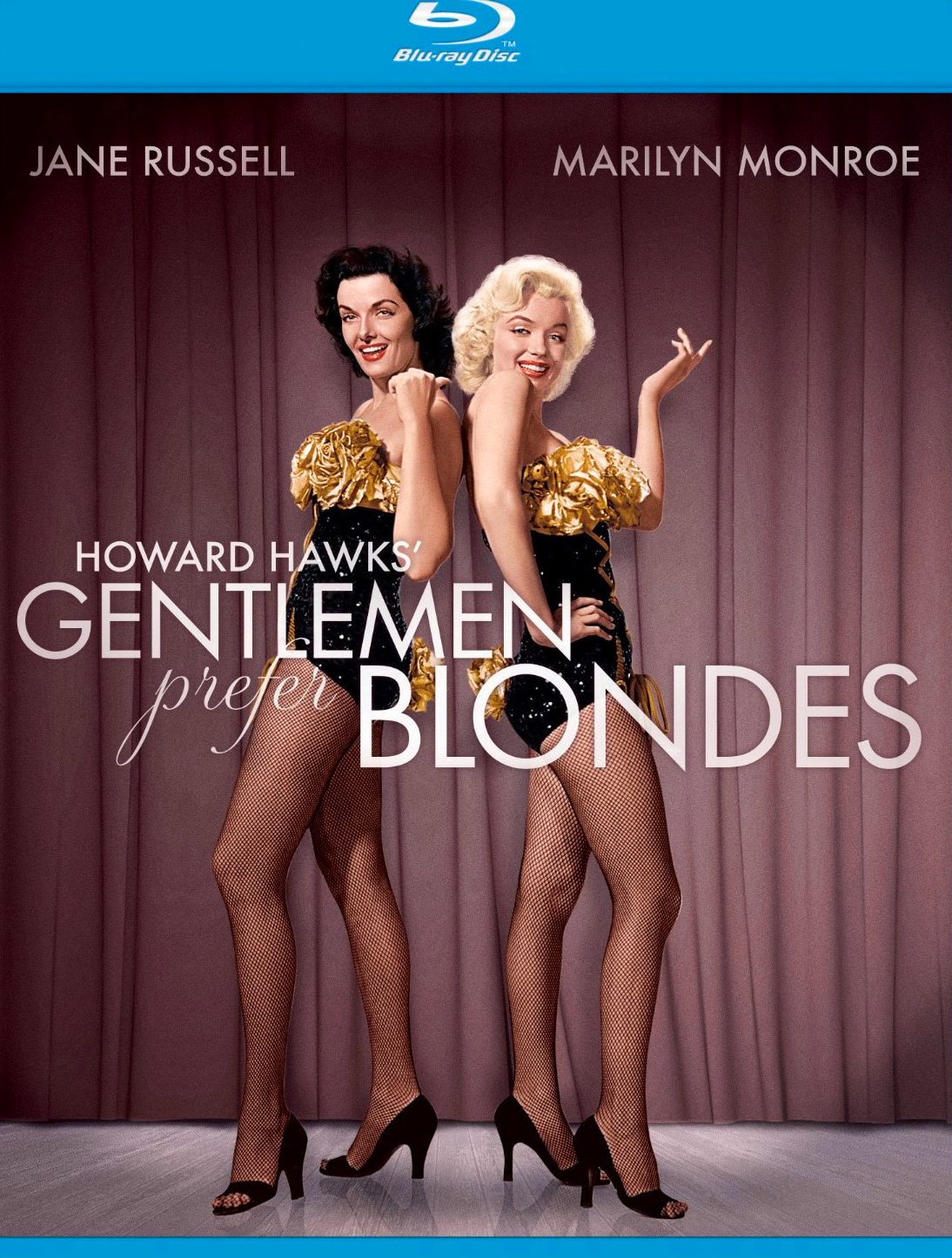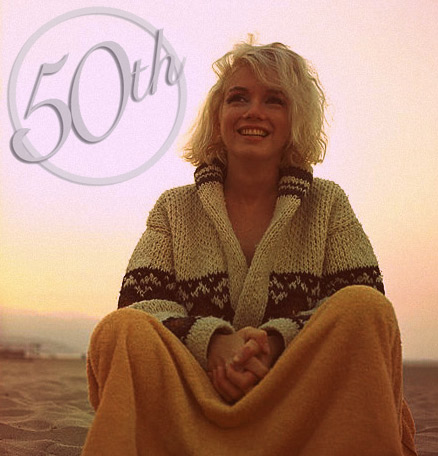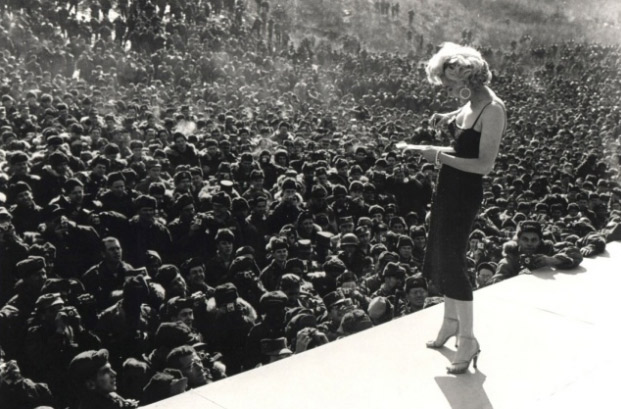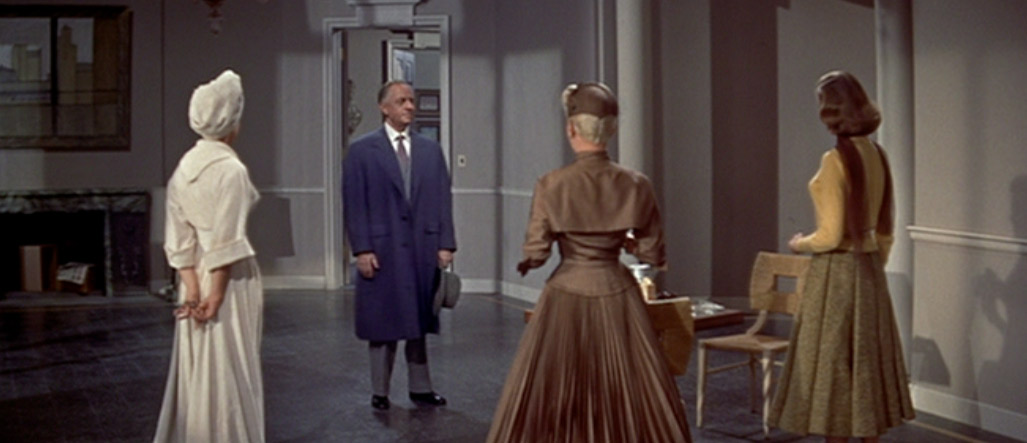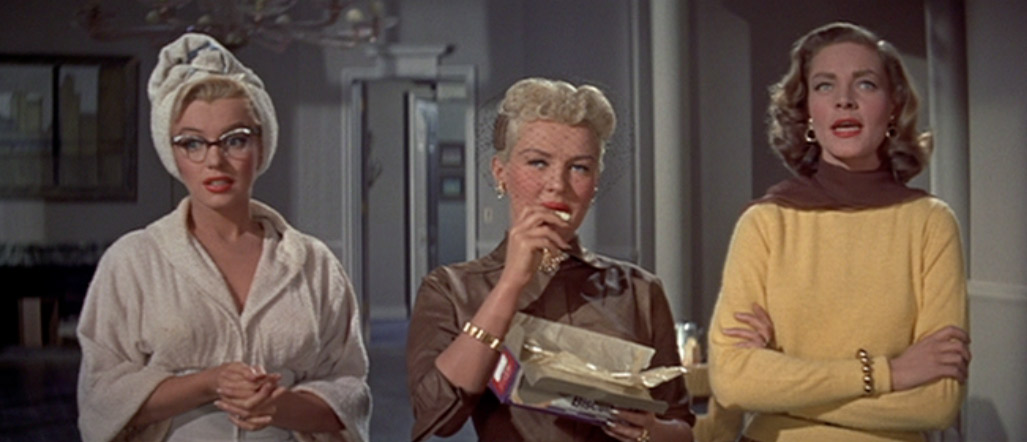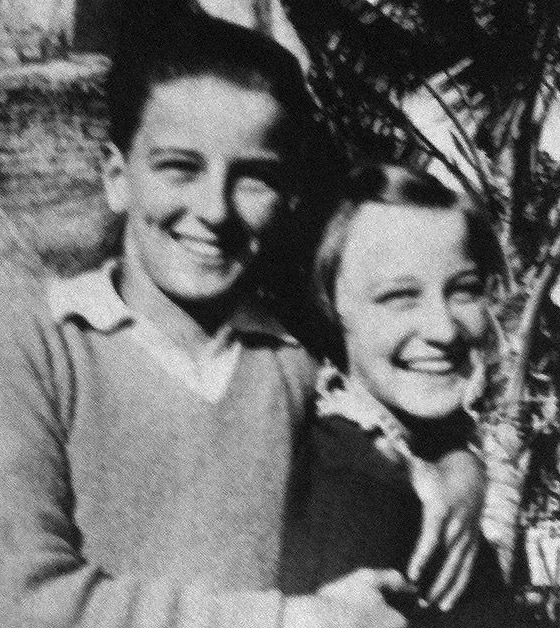Hit Me With Your Best Shot: "Singin' in the Rain"
 Wednesday, August 15, 2012 at 10:22PM
Wednesday, August 15, 2012 at 10:22PM I'm multi-tasking with this, the penultimate episode of Season 3 of Hit Me With Your Best Shot, the series wherein we choose the single best shot of pre-selected movies and discuss. Gene Kelly and Stanley Donen's masterpiece Singin' in the Rain (1952) is also a member of my personal canon (top ten to be exact) and we're using it to kick off our Gene Kelly Centennial Celebration. I'll be looking at a few more Kelly features next week, but we're starting with his greatest achievement. Weirdly the far inferior An American in Paris which directly preceded Singin' won Oscar's heart with ease and yet they ignored this one. 'I caaaannnnt stan' it').
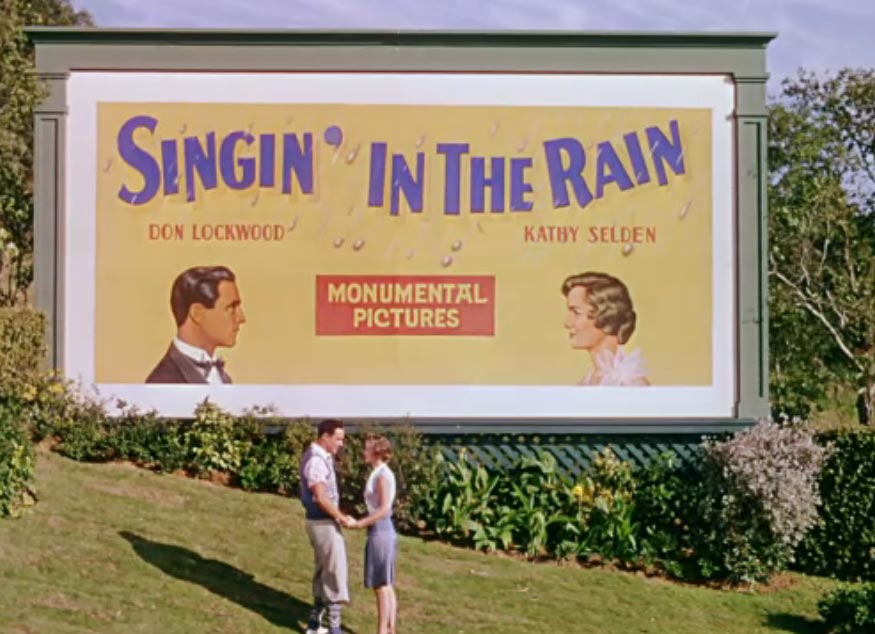 "Monumental Pictures"... Yep. It sure stands tall among them!
"Monumental Pictures"... Yep. It sure stands tall among them!
Singin' in the Rain more than earns its reputation as 'the happiest movie ever made.' I am reasonably certain that I could write about Singin' in the Rain every day for a year and still not run out of things to say. I'm already sad that this article will not include an ode to Lina Lamont (Jean Hagen SO deserved the Oscar and nabbed one of the film's two nominations. Only two!) or an examination of the largely unheralded "All I Do is Dream of You" number which I love beyond all reason and would be the best number in most musicals but is just a little toss off here.
All things considered, the film is lighter than air and swift on its feet both of which are jaw-dropping accomplishments since it's actually incredibly dense. Take the structure for a prime example: this movie about the history of movies (and, oh so casually, the DNA strands the medium borrows from the stage) starts with a premiere of a movie and then flashes back to previous (multiple) films before moving forward to become a movie about the making of new movie which too closely resembles the previous movie "if you've seen one, you've seen 'em all" which then gets rewritten as an entirely different movie with another movie embedded inside of it !!! After all of that, it ends with a poster of a movie that's yet to come... or is possibly the movie we've just watched. Whew. (It's got as many dream layers as Inception, Synecdoche New York or a David Lynch movie but way less fussiness about them.)
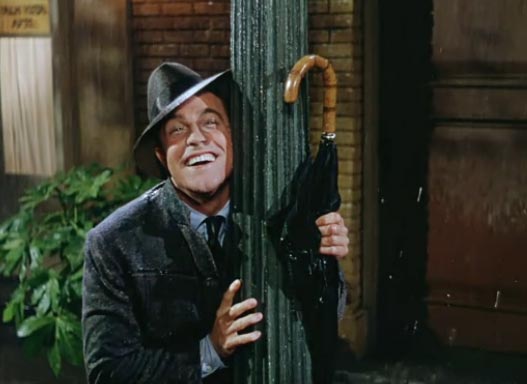 "and I'm ready for love ♪ " - usually my choice for "best shot" or at least the moment which I fall the hardest for Gene Kelly each time
"and I'm ready for love ♪ " - usually my choice for "best shot" or at least the moment which I fall the hardest for Gene Kelly each time
Singin' in the Rain's killer combination of joyful buoyancy, masculine athleticism and artistic grace as it leaps from scene to scene are perfectly paralleled in the face, body, and talent of Gene Kelly himself. Kelly is one of my two all time favorite male movie stars, the other being Montgomery Clift. As I watched the movie for the umpteenth time today it suddenly occurred to me that the two of them are a perfect bipolar representation of my own very particular Gemini cinephilia; they're my beautiful big screen avatars of Joy and Despair.
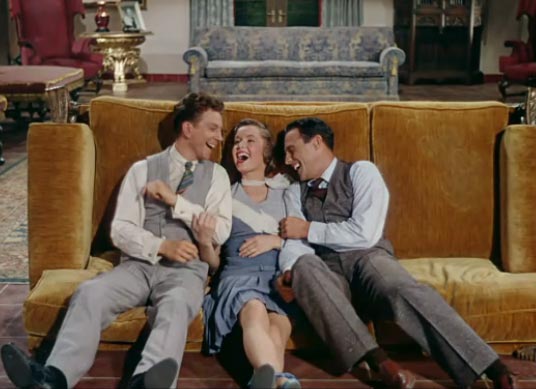 My "Best Shot" choice last night
My "Best Shot" choice last night
I bring this up because, curiously, for the first time while watching Singin' in the Rain I felt a wave of sudden sadness hit me. I was grinning from ear to ear as "Good Morning" began (the only sane response knowing the bliss to come from the scene's inventive choreography, perfect tripled performance and fluid feeling) when suddenly my eyes welled up and stayed that way for the entire number. This had never happened to me before! As Cosmo, Kathy and Don collapsed on the couch in a big heap of giggling, I felt as simultaneously elated and exhausted as the characters were meant to and as the actors might have been after multiple takes (so few cuts, so much dancing!). But I was laughing through tears because they don't make 'em like this anymore.

BEST SHOT PARTICIPANTS
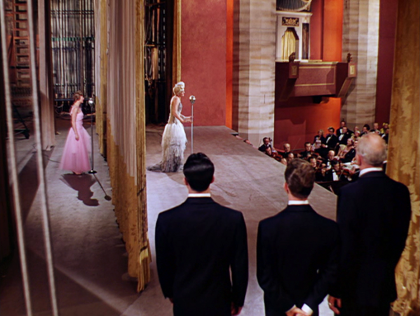
What a glorious feeling, they're blogging again...
The Family Berzurcher "It’s impossible to ignore the ecstasy of Singin’, but it takes movies very seriously."
Dial P For Popcorn "it makes me shiver... it makes me swoon"
Serious Film "continually reframing the dancers, moving them in and out of shadow"
Antagony & Ecstasy "the lies movies tell are part of what makes them work as movies"
Coco Hits NYC "a playfulness that is just magnetic"
Okinawa Assault "a sequence where gray and black dominate, is just as happy as the scenes with brighter colours in them."
Film Actually "the suggestion of sex is never this overt"
Being Norma Jeane "Cosmo and Lina are just beautiful in this movie. So funny, so brilliant."
Sorta That Guy "It made me laugh, made me want to learn tap dancing, and most obviously made me fall in love with Kelly."
Encore's World "Lina, unable to discern the difference between real life and fantasy"
Pussy Goes Grrr "Show biz is not sophisticated. In fact, it’s crude. It’s stupid. But per Singin’ in the Rain, it’s a glorious, outrageous, beautiful kind of stupidity"
And welcome these 'best shot' first timers!
Arf She Said "I love how the whole film opens up as Don's heart expands."
Kelli Marshall "the one shot of Singin’ in the Rain that gets me every time"
Allison Tooey "looking utterly at ease despite flimsy support"
Lerblacompo "Don and Gene believed in their fantasies so much that it's impossible for us not to believe them, too."

If you didn't participate, tell us about your favorite shot in the film!
Do your feelings line up with any of these joyful to read articles?
[P.S. Next week is the Season 3 finale of "best shot" as we watch "Dog Day Afternoon" together. Best Shot will return in 2013 for a fourth season! Every episode thus far]



